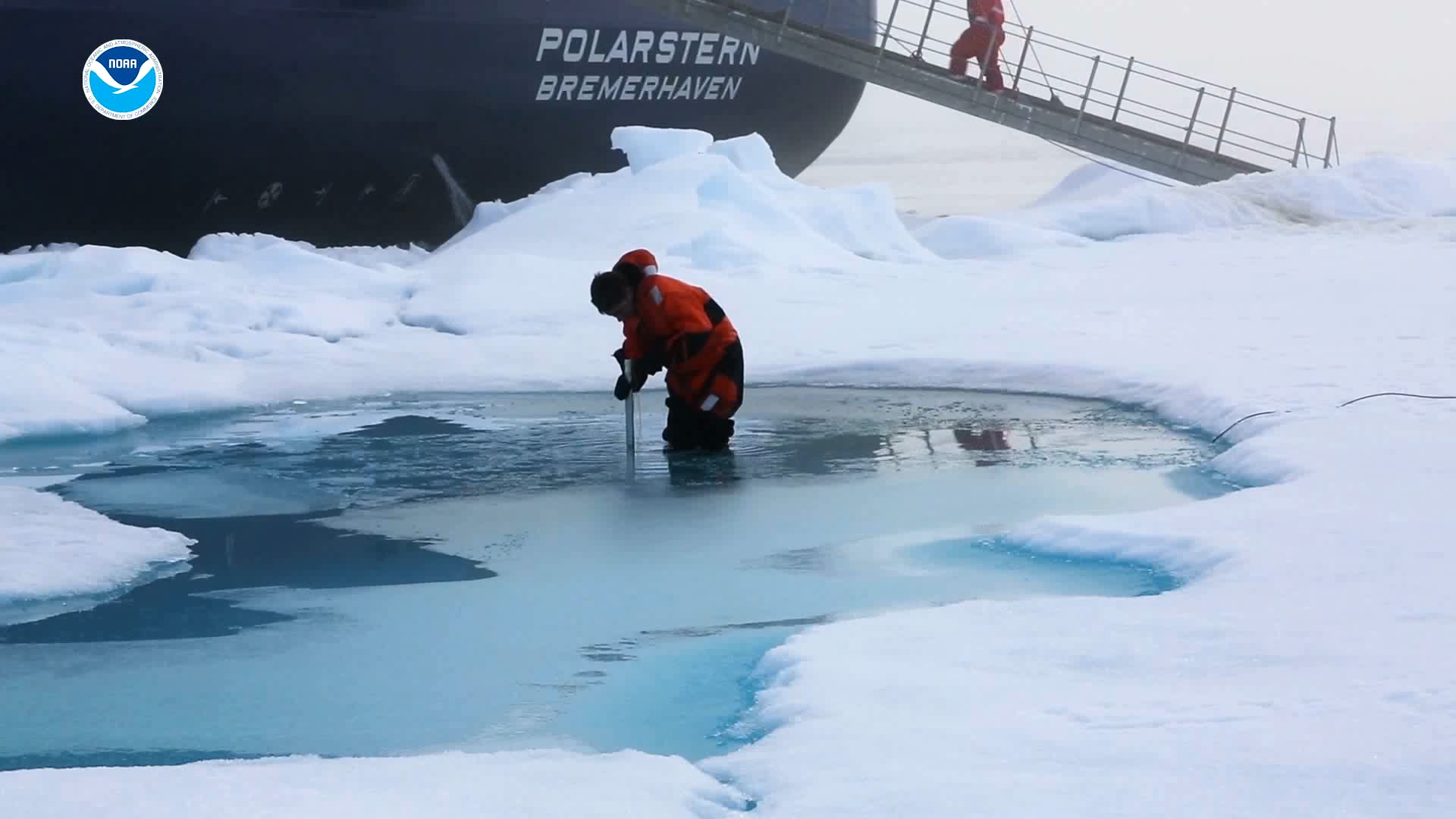Scientists Detect Signs of Abrupt Climate Shift in Arctic
Ice cores obtained years ago document an ominous rise of temperatures, abrupt change manifesting just within a few decades.
Ice cores obtained years ago document an ominous rise of temperatures, abrupt change manifesting just within a few decades.
First scientists thought this must be an error, but slowly they realize what it could mean for us today.
Research into the polar ocean, found, it is getting hotter at a rate faster than even the worst case climate scenario predictions. To put this into a better perspective, an international team of climate scientists then compared the observed changes in the Arctic with rapid climate fluctuations during past geological times.
The best climate fit, the Greenland ice cores, document incredible temperature jumps of 10°C or even 12°C, over a period of 40 to 100 years – during brief warm episodes during the ice age between 120,000 years and 11,000 years ago.
On average, the Arctic has been warming at the rate of 1°C per decade for the last four decades. Around Norway’s Svalbard archipelago, temperatures rose even faster, at an astonishing rate of 1.5°C every 10 years.
“We have been clearly underestimating the rate of temperature increases in the atmosphere nearest to the sea level, which has ultimately caused sea ice to disappear faster than we had anticipated” Jens Hesselbjerg Christensen, a professor at the University of Copenhagen’s Niels Bohr Institutet (NBI)
The sudden rise of temperatures, also means that the cryosphere, the frozen parts of our environment are disappearing. For instance, the Greenland ice sheet – is melting incredible fast; more alarmingly, its icecap is losing ice mass at a rate that suggests the loss could become unstoppable.
Researchers have also confirmed that the average planetary temperature continues to rise inexorably, that the Arctic Ocean could be free of ice in summer as early as 2035, and that the climate scientists’ “worst case” scenarios are no longer to be regarded as a warning of what could happen: the evidence is that what is happening now already matches the climate forecaster’s worst case. The latest finding implicitly and explicitly supports this flurry of ominous observation.
“We have looked at the climate models analysed and assessed by the UN Climate Panel,” said Professor Christensen. “Only those models based on the worst case scenario, with the highest carbon dioxide emissions, come close to what our temperature measurements show over the past 40 years, from 1979 to today.”
Watch James White, talking about abrupt change, in this 2014 AGU presentation.
With CO2 levels today around 400ppm, we are clearly committed to far more climate change, both in the near term, and well beyond our children’s future. A key question is how that change will occur. Abrupt climate changes are those that exceed our expectations, preparedness, and ability to adapt. Such changes challenge us economically, physically, and socially. ~ James White, Institute of Arctic and Alpine Research
This article contains information from the following publications:
- Arctic heating races ahead of worst case estimates https://climatenewsnetwork.net/arctic-heating-races-ahead-of-worst-case-estimates
- New study warns: We have underestimated the pace at which the Arctic is melting https://www.eurekalert.org/pub_releases/2020-08/uoc-nsw082620.php
